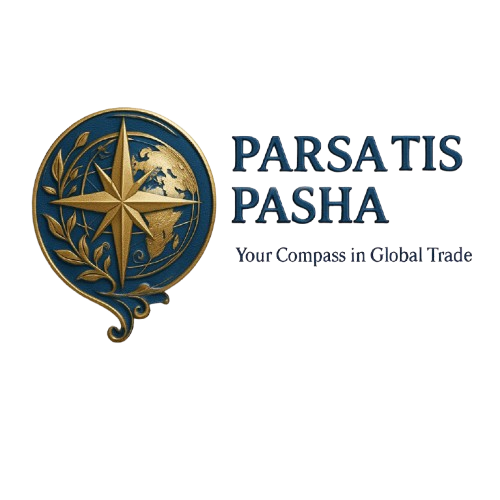Strategically positioned at the crossroads of Europe and Asia, Turkey has long cemented its role as a critical player in global trade. For international importers, the country represents not just a market, but a dynamic hub of industrial might, agricultural abundance, and manufacturing prowess. As global supply chains continue to shift, understanding Turkey’s key export sectors is more crucial than ever for businesses looking to diversify, innovate, and secure a competitive edge.
This in-depth market analysis provides a comprehensive overview of Turkey’s export powerhouses. We will delve into the primary sectors driving the nation’s trade success, exploring the products, capabilities, and opportunities that make Turkey an indispensable sourcing destination for importers worldwide. This guide is designed to equip you with the strategic insights needed to navigate and capitalize on one of the world’s most vibrant economies.
1. The Automotive Industry: A Global Manufacturing Hub
Turkey’s automotive sector is arguably its most dominant export powerhouse. Home to global giants like Ford, Toyota, Hyundai, and Renault, the country has cultivated a world-class manufacturing ecosystem. The industry excels not only in producing finished vehicles but also in manufacturing high-quality automotive parts and components.
- Key Products: Passenger cars, light commercial vehicles, buses, trucks, and a vast range of automotive components (engines, gearboxes, electrical parts).
- Why It’s a Powerhouse: The sector benefits from a highly skilled workforce, significant foreign investment, and state-of-the-art production facilities that adhere to strict European standards. For global importers, sourcing from Turkey means accessing top-tier quality, competitive pricing, and advanced production capabilities. The focus on electric and hybrid vehicle production is also creating new, future-focused opportunities.
2. Textiles and Apparel: Where Quality Meets Style
With a rich history in textiles, Turkey remains a global leader in the apparel and home textiles industry. Turkish manufacturers are renowned for their high-quality cotton, innovative designs, and ability to respond quickly to fashion trends. The industry serves as a primary supplier for many of the world’s leading fashion brands.
- Key Products: Ready-to-wear clothing (especially denim and knitwear), home textiles (towels, bed linens), carpets, and technical textiles.
- Why It’s a Powerhouse: The Turkish textile industry offers a fully integrated “design-to-delivery” model. Its strengths lie in its flexibility, short lead times, and a strong emphasis on sustainable and organic production methods. For importers, this means fast, reliable access to high-fashion, high-quality products.
3. Machinery and Industrial Equipment: The Engine of Production
A testament to its industrial maturity, Turkey’s machinery sector is a vital and growing component of its export profile. Turkish manufacturers produce a wide array of machinery known for its robust construction, reliability, and technological sophistication.
- Key Products: Industrial boilers, construction machinery, engines, heating and cooling systems, and agricultural machinery.
- Why It’s a Powerhouse: This sector combines cost-effective production with a commitment to German-level engineering standards. Many Turkish firms are highly specialized and offer custom solutions, making them ideal partners for industrial businesses seeking reliable and efficient equipment to power their own operations.
4. Iron and Steel: The Foundation of Global Construction
Turkey is one of the top ten steel producers in the world and a major exporter of iron and steel products. The industry is a cornerstone of global construction and manufacturing, supplying essential materials for infrastructure projects and industrial applications worldwide.
- Key Products: Rebar, hot-rolled coils, pipes, profiles, and wire rods.
- Why It’s a Powerhouse: The strategic location of its ports provides Turkish steel producers with a logistical advantage, enabling efficient shipment to markets in Europe, the Middle East, and North Africa. The industry is known for its modern production facilities and ability to produce high-grade steel that meets international specifications.
5. Agriculture and Food Products: A Fertile Ground for Opportunity
Blessed with a favorable climate and fertile lands, Turkey is a net exporter of agricultural and food products. It is often referred to as the “breadbasket” of the region, famous for a diverse range of high-quality produce.
- Key Products: Hazelnuts (world’s largest producer), dried fruits (figs, apricots, raisins), citrus fruits, tomatoes, pasta, and processed foods.
- Why It’s a Powerhouse: Turkish agricultural products are globally recognized for their superior taste and quality. The sector’s strengths include its diverse product portfolio, adherence to international food safety standards, and a well-developed food processing industry. For food importers, Turkey is a reliable source of both fresh produce and value-added food products.
Conclusion: Partnering for Success in the Turkish Market
Turkey’s export landscape is a dynamic tapestry of powerful, innovative, and highly competitive sectors. From automotive parts to high fashion, and from industrial machinery to premium agricultural goods, the opportunities for global importers are immense. Success in this market, however, requires more than just identifying the right product; it requires expert navigation of local regulations, logistics, and business culture.
Understanding these export powerhouses is the first step. The next is to build a strategic partnership with a team that can unlock the full potential of this vibrant market for your business.
To explore sourcing opportunities and develop your import strategy from Turkey, contact the experts at Parsatis Pasha.
Website: parsatispasha.com Email: info@parsatispasha.com




No comment